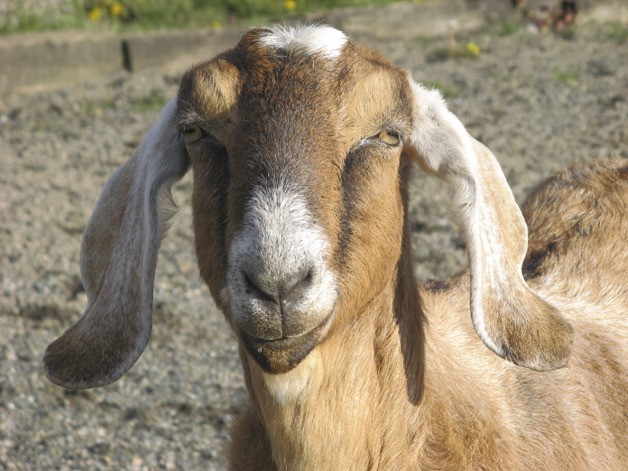Chickens, miniature goats, pot belly pigs — Auburn hasn’t allowed urban farm animals like those on residential properties for years, though it has carved out an exception for chickens in the recent Lea and West Hill annexations and in areas zoned “residential conservancy.”
That no-no sticks in the craws of many city residents, who have approached City leaders with the suggestion that adding a bit of green living and urban agriculture to the mix could be a good thing for Auburn.
“As a small-flock owner myself, there is great joy in getting your own eggs, being able to recycle your compost, weeds and yard waste,” said one resident, who talked to the City about the subject but has asked that her name not be used here. “The social aspect of having chickens also creates a community conversation piece.”
“There were people that wanted to keep chickens in the city limits, and it kind of expanded from there,” said Councilwoman Nancy Backus, a member of the Planning and Community Development Committee (PCDC). “When planners were doing their research, they started seeing what other cities have as far as types of animals, and they are being very diligent in bringing all that research forward to us.”
In presenting the issue to the PCDC on April 25, City planners suggested changes to the City code that would allow such banned backyard denizens. Members also talked about allowing miniature goats on commercial properties.
When the City annexed Lea and West hills in 2008, it let people retain some of the King County rules that allowed certain farm animals, including chickens. The proposed code amendment would standardize the rules across the City. It would also reflect a preference to follow regulations put forward by the City of Renton that allow such animals, but that tie their numbers to the square footage of the lot.
The issue landed in the lap of the City’s Planning Commission on Tuesday, where discussion centered on the allowable number of animals that could be permitted outright, provided the minimum lot size is met.
Here are the suggested changes to the permitted use table in Chapter 18 of the City code:
• Household pets: non-venomous reptiles and amphibians weighing 10 pounds or less, dogs, cats, rabbits, caged indoor birds, small rodents — four per dwelling or commercial building regardless of lot size. Each dog or cat must be licensed as a pet.
• Small domestic lot animals: chickens, ducks, geese, pigeons — four on lots of at least 6,000 gross square feet. On lots larger than 6,000 gross square feet, one additional small lot domestic animal could be kept per additional 2,000 gross square feet.
• Medium lot domestic animals: pot belly pigs and miniature goats smaller than 24 inches at the shoulder weighing no more than 150 pounds — two lots that are at least 12,5000 gross square feet. On lots that are greater than 12,500 gross square feet, one additional medium lot domestic animal could be kept per additional 7,500 gross square feet
• Large lot domestic animals: horses, ponies, donkeys, cows, standard size goats, llamas, oxen, standard-sized pigs, and roosters — two on lots that are at least one gross acre in size, on lots that are larger than one gross acre, one additional large lot domestic animal may be kept per additional 43,560 square feet.
“So, basically, all kinds of animals could be on your property if you had enough property, depending on your size,” Judi Roland, chair of the planning commission, asked senior planner Hillary Taylor.
“Correct,” Taylor answered.
Right now, King County handles the licensing requirements for dogs and cats, Taylor noted, and those requirements would be extended miniature goats and potbellied pigs, but not chickens.
Members agreed on one noisy critter they wouldn’t allow.
“No roosters, we definitely don’t want roosters crowing at 4 o’clock in the morning,” said Councilwoman Nancy Backus, a member of the PCDC. “But chickens, if they are maintained well, I don’t see a problem with that, as long as we limit the number.



